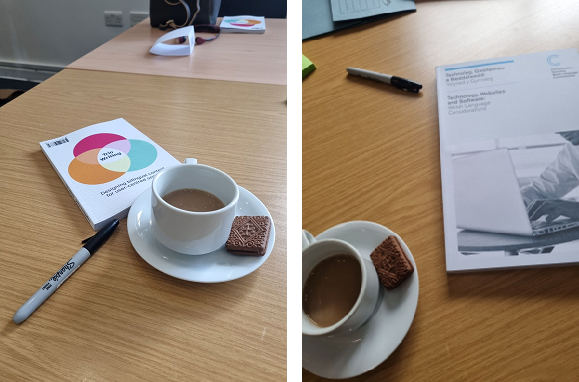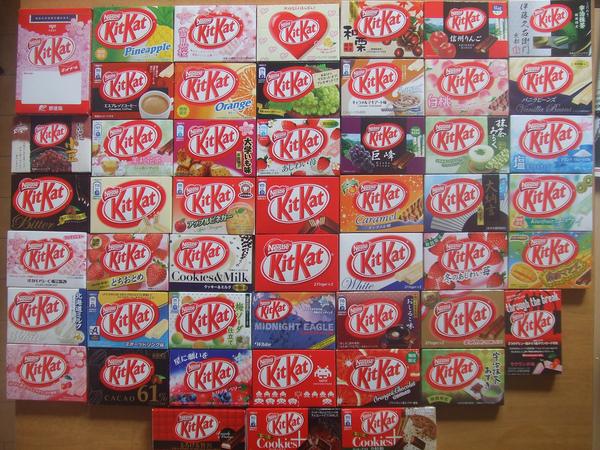Weeknotes 22/03/2024
Another week with lots of publishing and learning. Along with one worried Heledd as the initial placeholder for our weeknotes said:
“Stuff happened, words were said, tears were shed…Then we bucked up and wrote the weeknotes.”
Language matters #YrIaithArDaith
Lucinda and Heledd went to Llanelwy (St Asaph) for an event with the Welsh Language Commissioner and the Centre for Digital Public Services. We like that these two organisations are now working together!
There’s great progress happening in this space, and we’re enjoying playing our part in learning, collaborating and contributing to best practice.
The morning kicked off with a summary of the 2050 mission of a million Welsh speakers, and goals for:
- The Welsh language to be a routine part of everyday life
- Welsh speakers to feel confident in the use of formal and informal situations
- products and services are offered proactively in Welsh.
Then, we had the privilege of attending an academic lecture by Dr. Osian Elias which covered:
- barriers to using Welsh - including historic sociolinguistic context
- psychology of (language) choice
- behavioural insights
- principles to improve the promotion and design of Welsh language services.
With our brains expanding after the morning’s lecture and bellies full of biscuits, the afternoon began with a chat about how organisations currently approach translation. Lots of organisations (councils, fire, etc.) had similar approaches and familiar challenges - too much content, not enough time, not enough people thinking about users. But some had very different approaches, most notably Gwynedd Council, where the majority of staff write in Welsh first (then translate to English).
Then, Osian Jones from CDPS led a session about user-centred design and trio writing, before Heledd joined him on stage to answer questions about her favourite things user-centred design, and the evolution of bilingual design. Osian and Heledd were honest about the challenges organisations have with content (in both languages), and tried to share some practical tips to help others get started.
Some pictures of my coffee and biscuit next to free reading materials:

Heledd on stage:

It’s Services Week
Services Week is an annual event series run by the Government Digital and Data community and focuses on public services from a digital and service design perspective.
A few members of the team sat in on some online talks and workshops:
How to minimise the carbon footprint of a digital service
Toyah attended the Services Week session ‘How to minimise the carbon footprint of a digital service’. While most of the science stuff went well and truly over her head, she was struck by the impact that software (and relatedly, content) design can have on carbon generation.
Definitely something for us all to consider in relation to our own website!
Helping users exit a page quickly
Lucinda joined a session on the ‘exit this page’ component in the GDS design system. The component was developed to give users a way to quickly and safely exit a service. It is to be used particularly when the service contains sensitive information that could put someone at risk if they were seen completing it. For example, someone experiencing domestic abuse.
What stood out was the care and consideration the team put in to ensure that the design is simple and accessible, as well as one that would not further endanger a user.
Read more about it in their blog:
Exit this page fast with the Design System’s new component – Design in government blog
Navigation: help us define our next component
Lucinda also joined a session about a new navigation component being developed for the GOV.UK design system. We don’t use the same CMS as GOV.UK so some of the more specific details weren’t relevant, but there were some very interesting discussions around navigational elements and best practice in the breakout sessions.
‘Designing Whole Services’ (DEFRA)
Sam joined a Services Week session ‘Designing Whole Services’ (DEFRA) on Friday, noting some fab takeaways:
- ‘small wins’ open the door for more transformative change
- pivot quickly and take opportunities as they arise
- deliver training on benefits of having multi-disciplinary teams working on a problem
- challenge the model of ‘building stuff to solve a process problem’ - identify more cost effective solutions
- see digital as equal partners in the delivery of the service
see digital as equal partners in the delivery of the service
Use the Lean UX canvas for ideation
Heledd joined a workshop session with Department for Education. It was a chance to test some different practical tools to:
- better identify the business problem and outcome
- understand user outcomes
- identify and map assumptions
- design experiments
Deloitte and the marine licensing discovery…
Toyah and Sam quickly mocked up ideas for solving some of the most pressing problems for both licence applicants and NRW staff when it comes to the current application forms.
They were keen to show the Deloitte team, and marine SMEs, what we already are achieving with the tools we have, such as our form builder, CMS, GOV.UK Pay and Citizen Space.
Showing a thing rather than talking about it often works so much better. A picture is (sometimes) worth a thousand words! Their ideas were well-received and they felt that the time invested in mocking something up was well spent. The show and tell session next week will be a great opportunity to share this more widely.
Accessibility and reports
This week, Sophie, Kim and Owain have been working through a series of reports, accessibility checking them and publishing them in their relevant sections of the website. It’s been great to see the standard of evidence reports improving, with many reports being sent in with no accessibility faults at all. Reports that have been written and reviewed in line with our organisation’s accessibility and style guides are often published much quicker as they do not require audits etc.
Our team is looking to create new guidance in the near future, to support the creation of accessible content, so if you have any specific requests or are struggling with a particular content type – please do let us know!
Other stuff the team has done
- Owain had been busy this week working ICT with an upcoming patch to the CMS. With discussions taking place this week, followed by working through the regression pack to ensure the patch hasn’t created any detrimental issues.
- James has been working on the Marine Licencing Insights report following the user research sessions he has done over the last few weeks
- Sophie and Kim are noticing the new content request form is going well so far!
- Lucinda is looking forward to hearing some feedback from the UAT testing that has begun this week for the Flood Warning Information System for Wales. This will be focusing on internal users of the new system.
- Sam finished designing a new notification form for waste permits – an interesting challenge because it involves lots of email routing depending on the location the user does the waste activity in
- Sam also made the final proofing changes to the fire prevention and mitigation plan guidance (Soph eagle-eyed proofing was a massive help)
Welcome baby Isabel!
Congratulations to Laura on her new arrival. The team was thrilled to hear the good news last week.
Lucinda was slightly disappointed to hear that the baby’s name wasn’t ‘Duck Race’ after all Laura’s hard work on permissions. But since Isabel is a lovely name, Lucinda will learn to live with it.
Fun fact
With Easter approching and much of us are (im)patiently for to enjoy a bit chocolate. There is one place that I think has us all beat with the sheer range you can have, and that is in Japan.
As Japan has over 200 flavours of Kit Kats. They’re exclusively created for different regions, cities, and seasons. There are some tasty-sounding ones like banana, blueberry cheesecake and Oreo ice cream, as well as some very questionable ones like baked potato, melon and cheese, wasabi, and vegetable juice.
